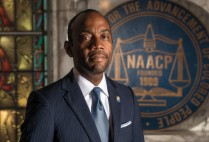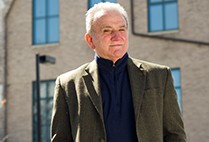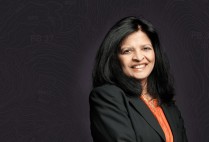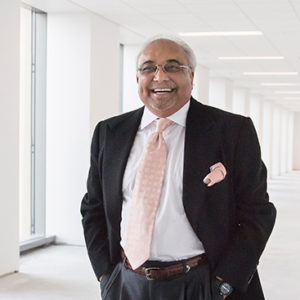During his 40-year teaching career at Boston University, Jack Aber became known as a devoted leader and an esteemed mentor among his colleagues. To his students, he was an enthusiastic, caring professor whose lessons had a major influence.
Aber, a Questrom School of Business professor emeritus and longtime chair of the finance department, died on January 12, 2015. He was 77.
As a testament to his impact, one of his former students, Douglas Chamberlain (MET’74, Questrom’76), established the Jack W. Aber Scholarship Fund in 2013. “Jack’s ability to interest and engage the classroom is legendary,” says Chamberlain, president of Appleton Partners, Inc., in Boston. “His enthusiasm is electric and he undoubtedly influenced thousands of undergraduate and graduate Boston University students over the years. Our friendship began in the classroom in 1975, and we remained closely linked for nearly four decades.”
Chamberlain says Aber was invited to join the advisory board at Appleton Partners in 2001, “where he was a brilliant and dynamic contributor to our firm’s growth and success. Jack truly inspired his fellow board and business colleagues, in addition to generations of BU grads. So very approachable, likable, and committed, his radiance as a teacher, colleague, and friend will carry on for all of us so privileged to have crossed his path.”
In November 2014, Questrom hosted a luncheon to announce the scholarship, and Aber was able to meet the first recipient, Michael Lohnes (Questrom’15).
Another of Aber’s former students, Robert A. Knox (CAS’74, Questrom’75), chair of BU’s Board of Trustees, had a deep admiration for Aber and sent remarks to be read at the celebration.
“When I was an undergraduate economics major at CAS, I took Jack Aber’s investment course in the B-school,” Knox began. “I was all of a sudden not bored in class for the first time in my academic life, as Jack revealed a whole world that I soon realized would become the passion of my professional life.”
Knox described his former professor as smart, practical, and inspirational, and said Aber communicated his lessons with clarity and enthusiasm. “Jack is a great teacher—a rare professor that encouraged critical thinking and inspired his students to be relentlessly curious and to question conventional wisdom.”
Aber earned a BS in chemistry from Pennsylvania State University, an MBA in finance from Columbia University, and a DBA in finance from Harvard University. He was commissioned as an ensign in the US Navy, and after five years of active duty, he spent 20 in the Naval Reserve, retiring as lieutenant commander.
In 1972, Aber began his BU career as an assistant professor of finance. Throughout his time at the University, he was recognized for his teaching, receiving several “Professor of the Year” awards. He led the finance department for more than 12 years, and, according to his fellow faculty members, did so with a contagious drive.
“He was constantly interested in student feedback on how he could improve, which was infectious and helped him and others around him become better teachers,” says Mark Williams (Questrom’93), Questrom executive-in-residence and a master lecturer of finance, who was one of Aber’s students. “He was a natural in the classroom and captivated his audience.”
Williams recalls that when he joined the faculty in 2002, Aber took him under his wing, and the two cotaught a finance course, which Williams describes as “a humbling experience.” Aber was determined to make it a dynamic, sought-after course and, through countless hours of interviewing students, revising course materials, and reviewing possible replacement texts, he accomplished his goal.
“The easy route would have been to just accept that a course on banking was boring,” Williams says. “Instead, it’s now one of the highest-rated finance courses at BU. Since 2002, thanks to Professor Aber, there have been over 6,500 students who have learned about finance, how the financial markets work, and how they can be improved to better run our global economy.”
He adds, “Jack loved to teach and he loved his students, and it showed.”















































I had Professor Aber for a finance course in 1975. He was a tremendous communicator and a very engaging person. Please let me know how to make a contribution to the Jack Aber Scholarship fund.
Thanks,
Richard Shamban, GSM ’76
Hi Richard,
Thank you for your note! Here is the information:
Gifts by mail:
1. Make your check payable to Trustees of Boston University.
2. Note on the memo line of your check how you would like to designate your gift, or attach a note to that effect. If you do not include a designation, your gift will be used for the general teaching, research, and public service initiatives of Boston University.
3. Mail your gift to Boston University Gifts & Records, 595 Commonwealth Avenue, Suite 700, West Entrance, Boston, MA 02215
Online gifts: https://trusted.bu.edu/s/1759/2-bu/giving.aspx?sid=1759&gid=2&pgid=412&cid=1044&appealcode=WEBAGC-CSHG
Write “Jack Aber Scholarship Fund” in the “Other” box at the top of the page.
Best regards,
Cindy Buccini
Managing Editor